Law Enforcement
 Custodial Interrogation and the Legacy of Miranda Rights
Custodial Interrogation and the Legacy of Miranda Rights
Dr. Michelle Beshears
Miranda rights remain a cornerstone of American criminal procedure, designed to guard against coerced confessions and protect the constitutional rights of suspects. READ MORE
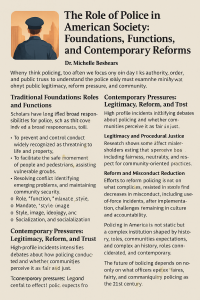 The Role of Police in American Society: Foundations, Functions, and Contemporary Reforms
The Role of Police in American Society: Foundations, Functions, and Contemporary Reforms
Dr. Michelle Beshears
Policing in America is not a static institution, but a complex one shaped by history, roles, community expectations, and ongoing reform. READ MORE
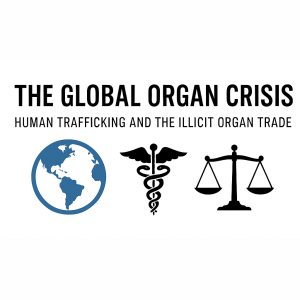 The. The Global Organ Crisis: Human Trafficking and the Illicit Organ Trade
The. The Global Organ Crisis: Human Trafficking and the Illicit Organ Trade
Dr. Michelle Beshears
The World Health Organization (WHO) estimates that 5–10% of all transplants worldwide involve organs from the black market. READ MORE
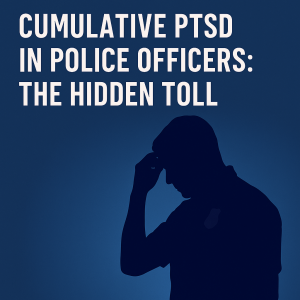 Cumulative PTSD in Police Officers: The Hidden Toll
Cumulative PTSD in Police Officers: The Hidden Toll
Dr. Michelle Beshears
Cumulative PTSD develops gradually from multiple stressful experiences. READ MORE
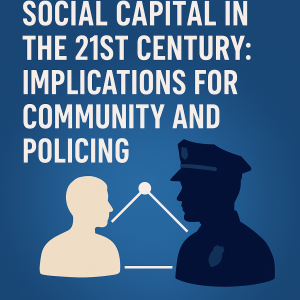 Social Capital in the 21st Century: Implications for Community and Policing
Social Capital in the 21st Century: Implications for Community and Policing
Dr. Michael Beshears
Looking ahead, there are concerns that future generations may experience even weaker social bonds. READ MORE
 Policing, Counterterrorism, and the Balance of Civil Liberties
Policing, Counterterrorism, and the Balance of Civil Liberties
Dr. Michael Beshears
Law enforcement in the United States faces a complex challenge: preventing terrorism while upholding the constitutional rights of citizens. READ MORE
John Rawls Theory of Justice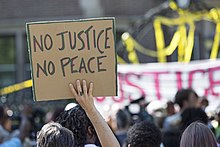
Dr. Michael Beshears
John Rawls (1921-2002) was a twentieth-century American philosopher who posited a theory of justice. He stated that there are two principles of justice acceptable to all people (Albanese, 2015, p. 97). READ MORE
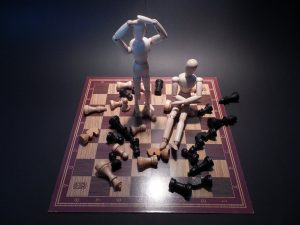 Building Social Connections: Future Perspectives
Building Social Connections: Future Perspectives
Dr. Michael Beshears
James Q. Wilson and George L. Kelling, authors of the groundbreaking article, Broken Windows: The Police and Neighborhood Safety, in the March 1982 issue of The Atlantic Monthly, postulated the broken windows thesis that unaddressed disorder is a sign that no one cares and invites both further disorder and more severe crime. By examining the Wilson-Kelling hypothesis in more than 40 cities, Wesley Skogan found that disorder is the first step in “the downward spiral of urban decay” (Harcourt, 2001). READ MORE
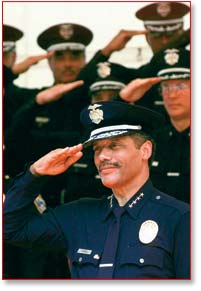 Understanding Command Hierarchies in Law Enforcement
Understanding Command Hierarchies in Law Enforcement
Dr. Michael Beshears, Dr. Michelle Beshears, and Dr. Mark Boind
The structure of law enforcement agencies, typically in a quasi-military organization, is used to promote efficient management and transparent communication chains during a crisis. Not all departments are identical, but most agencies follow the same concept. READ MORE
 Understanding The Concept of Community Policing
Understanding The Concept of Community Policing
Dr. Michael Beshears
To understand what is within a community, police must be aware of its demographics. Demographics encompass population size, distribution, growth, density, and vital statistics, including average age, education, income, employment rate, and ethnic composition. Community policing must begin with an understanding of what communities are and how they function. Citizens of the United States have established “public peace” through the U.S. Constitution and Bill of Rights, as well as through federal and state statutes and local ordinances. They also adhere to a social contract, which states that for everyone to receive justice, each person must relinquish some of their freedom. READ MORE
 Police Dilemmas to Overcome Intelligence vs. Law Enforcement Community
Police Dilemmas to Overcome Intelligence vs. Law Enforcement CommunitySomething to think about:
As White (2004) points out, the basic dilemma is a legal one. Law enforcement has for years been accustomed to working within legal constraints, collecting evidence that can be used for prosecution in a criminal court. There is a natural terminus to a criminal investigation. For years, the intelligence community has been accustomed to working with few legal constraints, and there is no natural terminus or end to an intelligence investigation. READ MORE
 Lawmaking: How a Law is Made
Lawmaking: How a Law is Made
Dr. Michelle Beshears
Let’s briefly touch on the basics as to how a law is made. READ MORE
Social Change and Legal Responses: A Dual Narrative
Dr. Michelle Beshears
History contains examples showing how the law has influenced social change. One need only look at the 19th Amendment of the United States Constitution. An Amendment, which Congress passed on June 14, 1919, was ratified in 1920. An Amendment I dare say most United States citizens take for granted with no idea about it or how important it was for America’s women. READ MORE
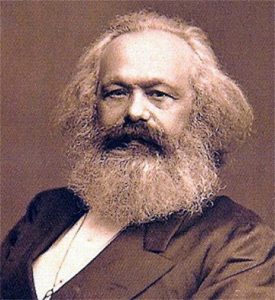
The Role of Sociological Theories in Law and Justice
Dr. Michael Beshears
You may find it interesting that in the study of sociology about law, there are three primary theoretical perspectives, i.e., the symbolic interactionist, functionalist, and conflict perspectives. READ MORE

Law as an Instrument of Social Change
Dr. Michael Beshears
The first thought that comes to my mind when I think of law and social control is the word anomie.
Now is about the time students usually ask, “What is anomie, professor?”. READ MORE
 Law and Dispute Resolution
Law and Dispute Resolution
Dr. Michelle Beshears
I’ve heard it said, “Just like “minor surgery” is everyone else’s but your own, “frivolous lawsuits” are all those but your own.” This comes to mind when I think about law and dispute resolution.
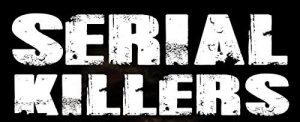 Psychopathology and Biogenics of Serial Murderers
Psychopathology and Biogenics of Serial Murderers
Dr. Michael Beshears
The inheritance school of thought is discounted by most researchers today because it is impossible to determine if criminal behavior is a product of inherited or acquired traits. The notion of born criminals provided the impetus for the eugenics movement of the early 1930s. Based on the belief that many criminal traits and mental illnesses were inherited, 27 states allowed the forced sterilization of the feeble-minded, chronic offenders, and the insane. However, the work of Lombroso and those supporting body-build theories have yet to be proven as valuable in understanding criminal behavior (Hickey, 2016). READ MORE
 American Courts and the Concept of Original Jurisdiction
American Courts and the Concept of Original Jurisdiction
Dr. Michelle Beshears
As a criminal justice undergraduate, I found the American court system to be one of the most challenging things to grasp fully. This is mainly because it was always confusing to me with all the different levels of courts. My confusion was compounded by the United States having what is known as a dual court system.
Police Suicide: An International Crisis
Dr. Mark Bond
Police suicides are occurring at alarming rates. This crisis is an international problem within the law enforcement community. READ MORE
 Law Enforcement Family Stress: When Counseling Counts
Law Enforcement Family Stress: When Counseling Counts
Dr. Mark Bond)
Police culture still struggles with acknowledging the serious effects that long-term exposure to traumatic events has on an officer’s mental and physical health. These events can be harmful even for officers who have displayed resilience throughout their careers. READ MORE
 Teamwork Investigating Child Abuse
Teamwork Investigating Child Abuse
Dr. Michael L. Beshears
Investigating alleged child abuse requires strong teamwork among police, social service personnel, medical personnel, and teachers. While all these professionals have an important role in identifying abuse, the most effective teamwork involves READ MORE
 The Fight Against Organized Crime: RICO Stands the Test of Time
The Fight Against Organized Crime: RICO Stands the Test of Time
Dr. Michael L. Beshears
Often most make an assumption that everyone knows how to formulate and run a team. This is why I have chosen to take this opportunity to concentrate on what some may feel is basic, but my experience is that forming a team is something that most rarely do effectively. READ MORE
 Time to Crack Down on Phishing and Other White-Collar Crimes
Time to Crack Down on Phishing and Other White-Collar Crimes
Dr. Michael Beshears
The term “white-collar crime” is derived from the assumption that business executives, wearing white shirts and ties, commit non-violent crimes. This term also theoretically distinguishes these types of crimes and criminals from those who commit physical crimes, which are supposedly more likely to be committed by “blue-collar criminals.” READ MORE

Bias-Based Policing: A Felony in Some States
Dr. Michael L. Beshears
Individuals typically cannot define exactly what constitutes bias-based policing. Bias-based policing is often misinterpreted as pertaining to just racial profiling. However, bias-based policing not only encompasses race and ethnicity, but it also includes gender, sexual orientation, economic status, religious beliefs, and age. READ MORE
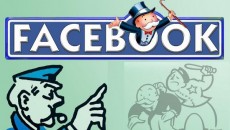
Social Media: Law Enforcement – Catch Me If You Can
In the past few years, Facebook has emerged as a fertile source of incriminating information from boastful or careless defendants who find Facebook a great way to project their outlaw personas to READ MORE

What happens to America when the job isn’t fun anymore?
Arkansas Sheriff – John Montgomery
Another Officer murdered, this time in Arkansas. The immediate and law enforcement families in shock. A few days ago I watched the press conference held by Sheriff Bill Hollenbeck of the Sebastian County Sheriff’s Office as he described the events leading up to the Deputy’s death. I listened as he struggled to be strong not only for the reporters in the room but for his department and community. I listened to the emotion and compassion in his voice and while admiring how strong he appeared, I was thankfully relieved it was not me standing there. READ MORE
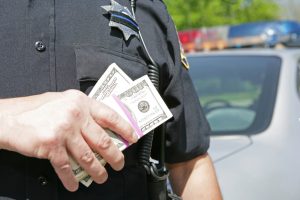
Police Officer Corruption
Dr. Michael Beshears
Law enforcement leaders should be mindful of their officers’ susceptibility to corruption, regardless of the form taken (i.e., grass-eater or meat-eater). Police leadership must be aware that, as DA theory indicates, law enforcement officers like anyone else are susceptible to corruption. READ MORE
Human Trafficking and the Illicit Organ Market
Dr. Michelle Beshears
The illegal trafficking of human organs is a serious problem. This is because the need far outweighs the current supply of legally obtained organs. It is estimated that approximately 18 people die each day while waiting for an organ transplant in the United States alone. However, the issue of supply and demand for organs is not limited to the U.S. This is an international problem that stems from the fact that there are just not enough donors to supply people in dire need of a life-saving organ transplant. READ MORE
 The Law Enforcement Family
The Law Enforcement Family
Dr. Mark Bond
Law enforcement is one big blue family. When an officer is seriously injured or killed in the line of duty it causes a shockwave across the law enforcement community. Knowing that a fellow officer has paid the ultimate sacrifice for protecting the community has an emotional impact on the entire law enforcement family. READ MORE
 Social Media: A Tool for Law Enforcement to Connect with the Community
Social Media: A Tool for Law Enforcement to Connect with the Community
Dr. Michael Beshears
The challenge for leaders in law enforcement is to find ways to utilize online social media to enable residents of the community to feel an authentic connection with the department and the police officers serving the community (Copitch & Fox, 2010). John Miller, the former head of the FBI public affairs branch, once stated that law enforcement needs to exist in the areas where people are present. Thus, if people are using online social media sites, the police need to be active there as well (FBI on Social Media, 2009). READ MORE
 Behavioral Signs of Police Officer Cumulative PTSD
Behavioral Signs of Police Officer Cumulative PTSD
Dr. Michelle Beshears
Even with all we know about its effects and ways to treat it, post-traumatic stress disorder (PTSD) is common among police officers and continues to take its toll on their lives and those of their families. READ MORE
 The Historical Evolution of American Policing
The Historical Evolution of American Policing
Dr. Mark Bond
In early America, the new settlers from England established colonies in North America. The new arrivals also brought with them the practice of seeking volunteers to form a constable-night watch system that they were familiar within England. These informal groups of volunteers usually consisted of older men who carried a lantern and bell as their tools. If a security problem occurred during the night, the constable-watchman would ring his bell to alert others of trouble. This informal system was the first attempt to provide security to the new settlers. READ MORE
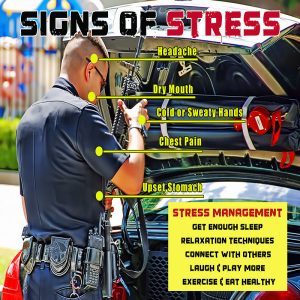 Police Officer: Stress Management Advice
Police Officer: Stress Management Advice
Dr. Michelle Beshears
One of the biggest problems for police officers is that stress can go unrecognized and unacknowledged. Officers are under constant stress and do not take the time to seek treatment. Many times they deny the stress they are experiencing for fear of being viewed as weak or not being able to handle their job. READ MORE


subscribe for free